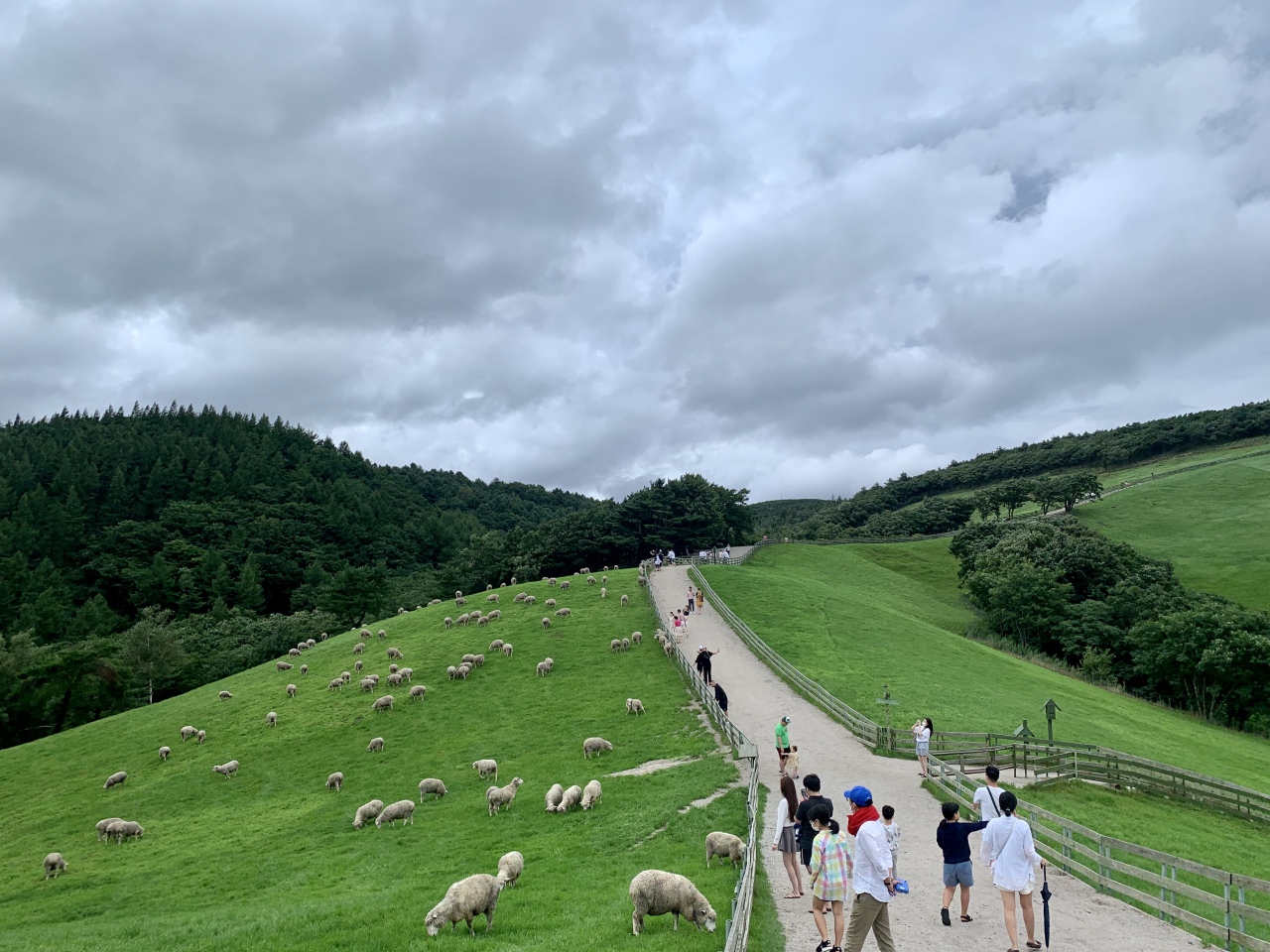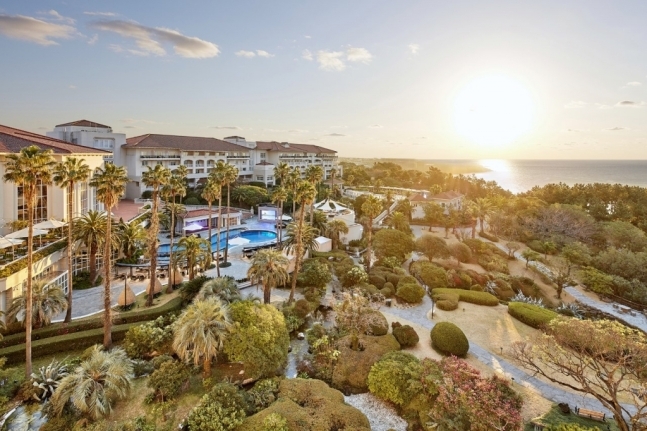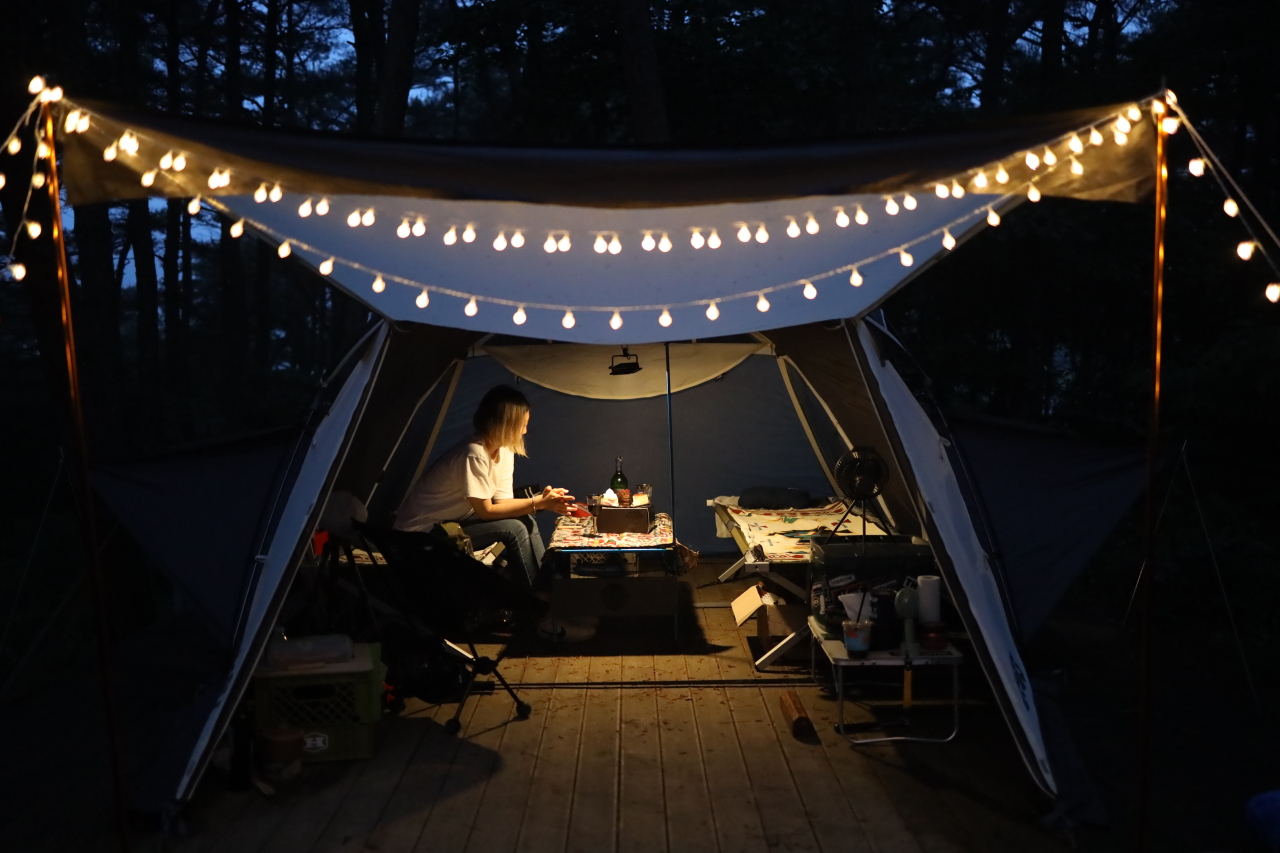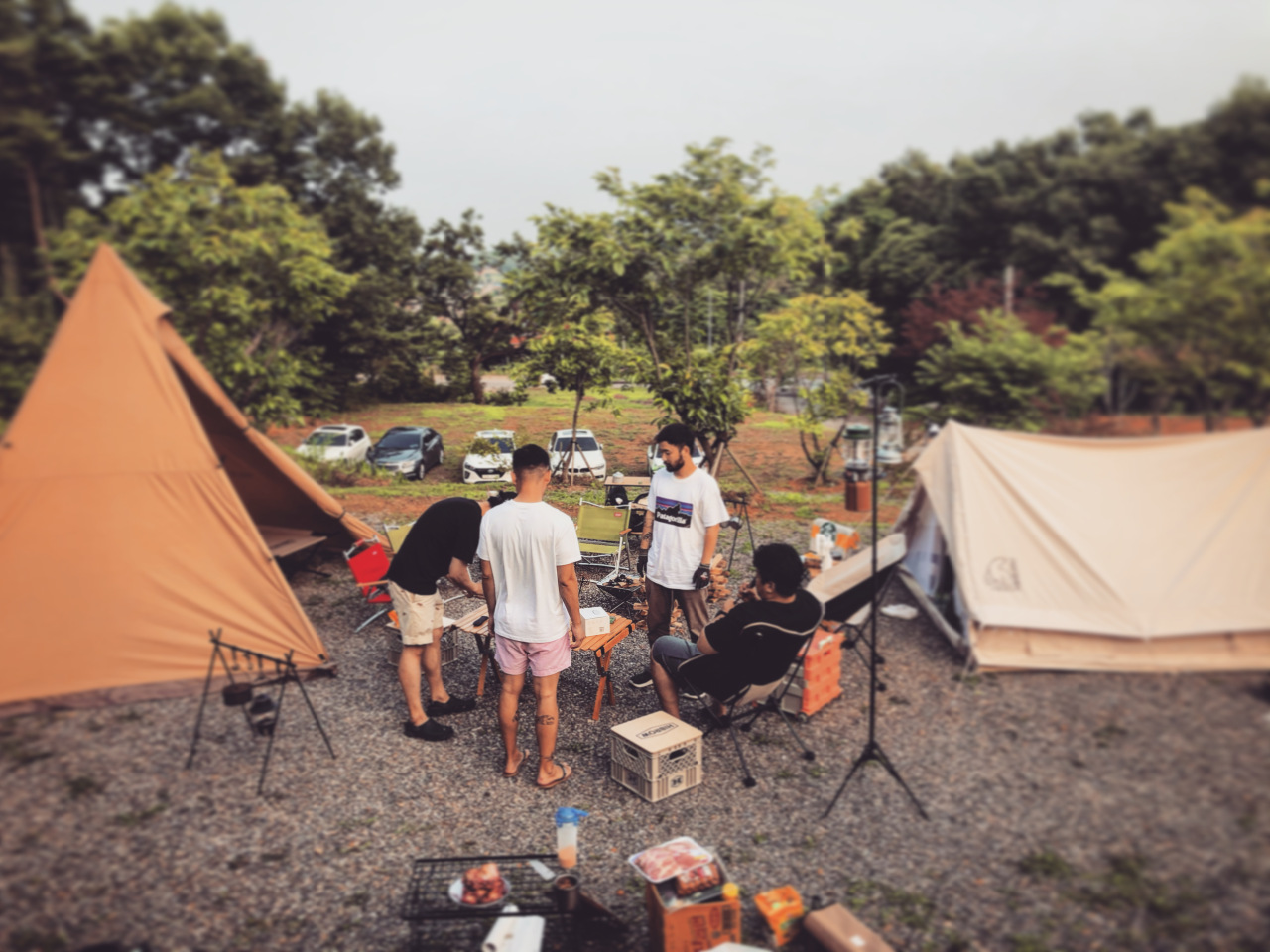 |
Tourists at the Daegwallyeong Sheep Ranch in Pyeongchang, Gangwon Province (Im Eun-byel/The Korea Herald) |
The show must go on, and so must travel.
While the COVID-19 pandemic has changed everyone’s life one way or another, one of the sectors that has been hit the hardest is the tourism industry.
The tourism industry around the world has been crippled by the virus. According to the UN World Tourism Organization, 96 percent of the planet’s destinations have imposed travel restrictions, either completely or partially closing their borders.
Though international travel is off the table for now, people driven by the so-called “wanderlust gene” soldier on, ready to get out of their comfort zones.
The virus threat has changed the rules of traveling -- no more passports, transfers, stopovers or boarding passes. Instead, domestic tourism has been going strong over the past few months as we adjust to the “new normal.”
The ’80s are back: Honeymooning on Jeju Island
 |
A couple on Jeju Island (Courtesy of Chung Eui-seon) |
 |
The Shilla Jeju (Shilla Hotels & Resorts) |
In the 1970s and ’80s, overseas travel was uncommon and Jeju Island was the dream destination for most newlyweds. Brides and grooms flocked to the island after the wedding, often boarding an airplane for the first time in their lives. Taxi drivers showed them around the subtropical island, taking photos of them.
When overseas travel became easier in 1989, newlyweds took off to more exotic, faraway destinations such as the Maldives, Hawaii, and in recent years even places like the Seychelles and Mauritius.
But the recent virus crisis is leading honeymooners to skip overseas trips for domestic ones.
“Flights to Spain were canceled, so I had no choice but to go on a honeymoon in Korea,” Ji Yun-jeong, a 30-year-old office worker in Seoul, said. Having tied the knot in May, Ji was planning to honeymoon on the Spanish island of Mallorca.
“Jeju Island was the only place in Korea that appealed to me as a travel destination. The trip was one-tenth of what Mallorca would have cost us, so we were able to save a lot. But still, it did not feel much like a honeymoon for me.”
In March and April, honeymooners took short trips to Jeju Island while planning “real honeymoons” later in the year. As the virus situation continues, however, more couples are making their Jeju Island trips the real deal.
Luxury hotel operators on Jeju Island -- such as The Shilla Jeju, Lotte Hotel Jeju and Jeju Shinhwa World Marriott Resort -- are targeting honeymooners with upscale package deals designed for guests who are willing to spend more than average tourists. They come complete with suites, food, beverages, and pick-up and drop-off services.
Individual accommodation options with a private pool area may also appeal to couples looking for a more private experience while on the island.
Camping is the new black
 |
A camper reads a book at a campsite in Yesan, South Chungcheong Province. (Courtesy of Lim Jeong-yeo) |
 |
Office worker Kim Su-hyeon and his friends while camping (Courtesy of Kim) |
The virus crisis is pushing people to go out in nature.
For those who are uncomfortable with the idea of sharing bedding and furnishings at a time like this, camping is becoming a popular option. After all, this outdoor activity tends to involve keeping one’s distance from others.
Campgrounds near the Seoul metropolitan area are fully booked nearly every weekend -- packed with families and friends looking for some quality time together.
Kim Su-hyeon, 33, an office worker in Cheonan, South Chungcheong Province, has fallen in love with camping: He has gone camping every week for the past three months. Kim originally had plans to go to Vietnam this year, but all his plans were ruined due to the virus. Instead, he used the trip fare to buy camping gear.
“There’s not much contact with other campers at campsites. But still, the common shower area is kind of worrisome for me,” he said.
Though camping has been in the spotlight as a coronavirus-free activity, six campers were confirmed to have the virus in late July after a three-day trip to Hongcheon, Gangwon Province.
“Some campsites check the body temperature of campers, but most do not. There should be policies about this. Campers should check their conditions and act responsibly, too,” Kim said.
Though Kim hopped on the camping wave after the virus outbreak, he plans to keep camping after the virus is contained.
“I began with auto camping, but would like to go backpacking to locations with low accessibility such as small islands. After that, perhaps I could go to Switzerland or Japan with my gear someday in the future,” he said.
A sanitized staycation Going to a hotel for an upscale staycation has been a hot trend in Korea in recent years, especially in the summer months.
This summer, hindered by the virus and the unusually long monsoon season, more people are planning indoor vacations without the stress of long-distance travel.
“Hotels are fully disinfected, and guests can avoid contact with others after checking in,” said Lee Yeon-seo, an office worker based in Seoul who enjoys a hotel staycation from time to time.
Lee thinks even the food and beverage services are safer in hotels compared with other businesses.
“Hotel restaurants ensure some space between tables. Chefs and servers always wear masks. Buffets may be risky, but staff members always tell guests to wear masks and sanitary gloves are available,” she said.
Hotels are adjusting to the new normal -- for example, by changing their service manuals in pursuit of contactless service and switching from morning buffets to a-la-carte breakfasts.
Disinfection is also an issue. Major hotels disinfect common areas such as gyms, lobbies and restaurants multiple times a day. Some also rely on artificial intelligence platforms to provide contactless services, so guests can check in and out using the latest technologies.
By Im Eun-byel (
silverstar@heraldcorp.com)








![[Weekender] Korea's traditional sauce culture gains global recognition](http://res.heraldm.com/phpwas/restmb_idxmake.php?idx=644&simg=/content/image/2024/11/21/20241121050153_0.jpg)



